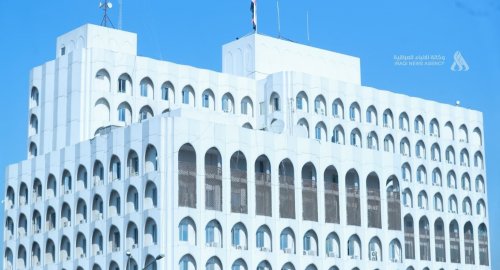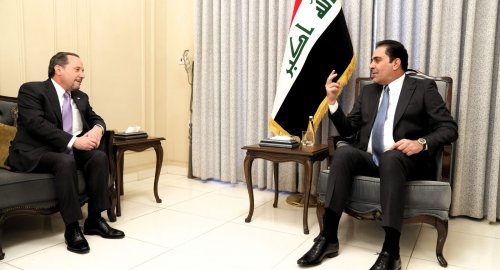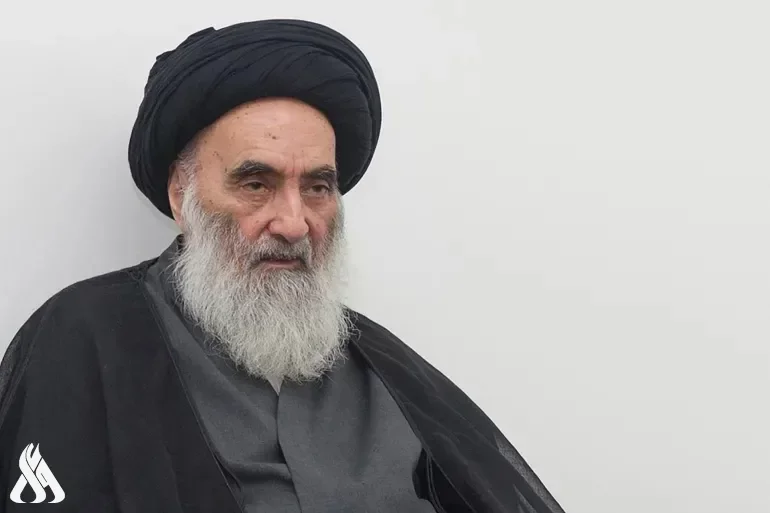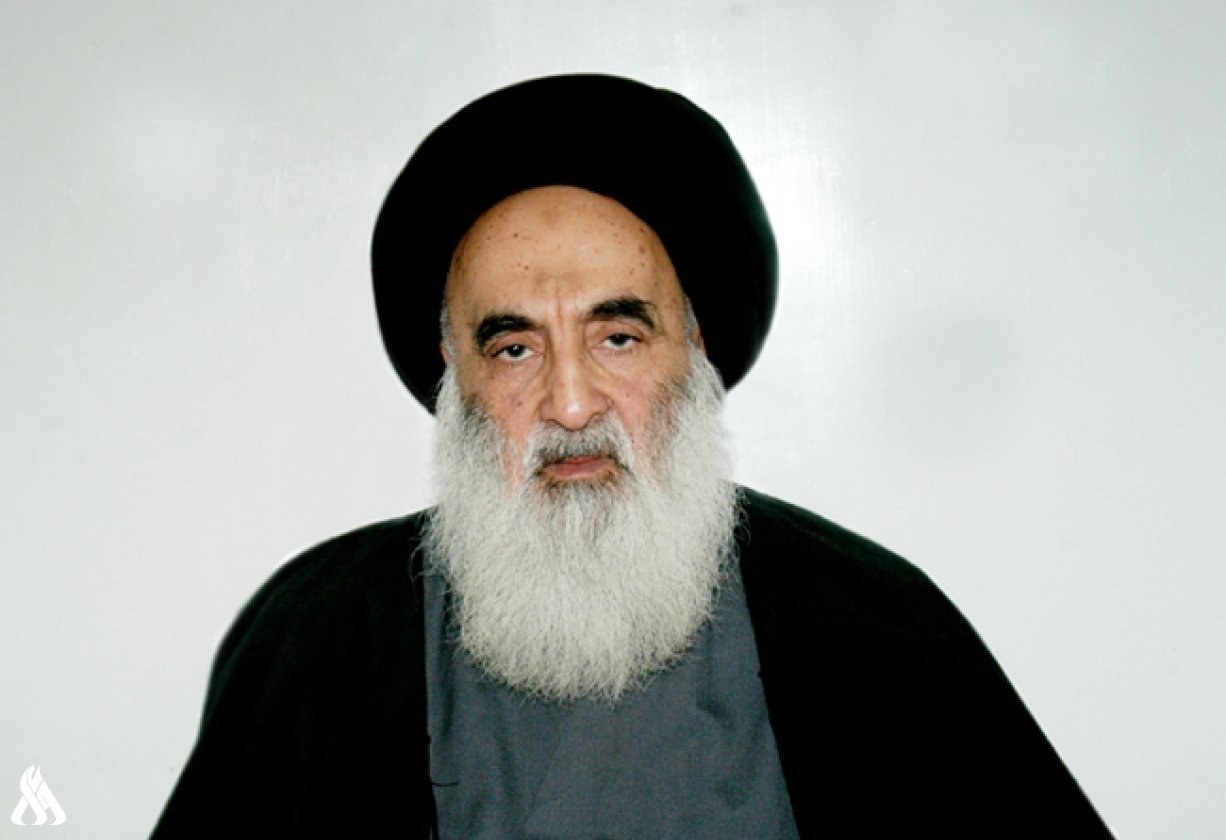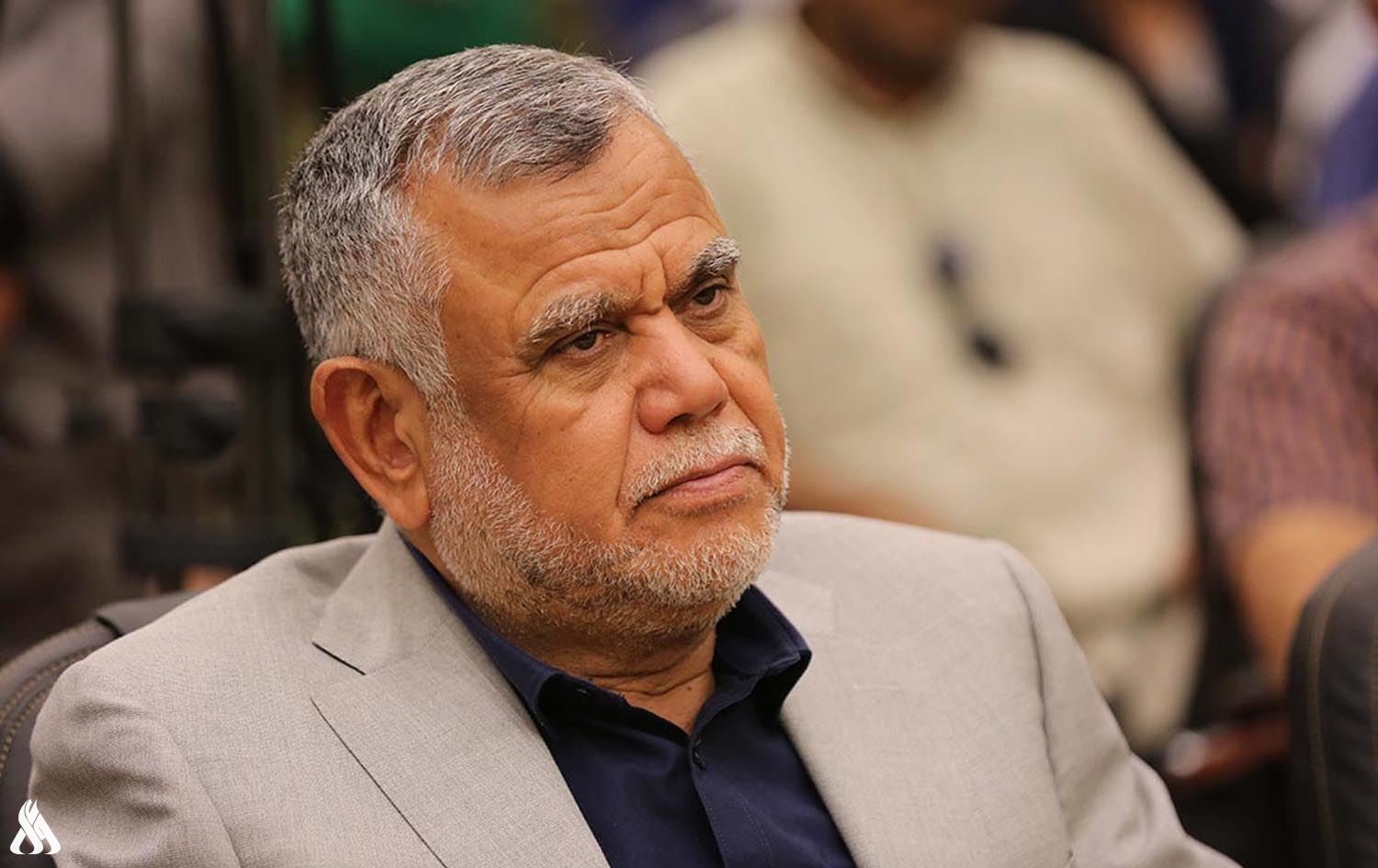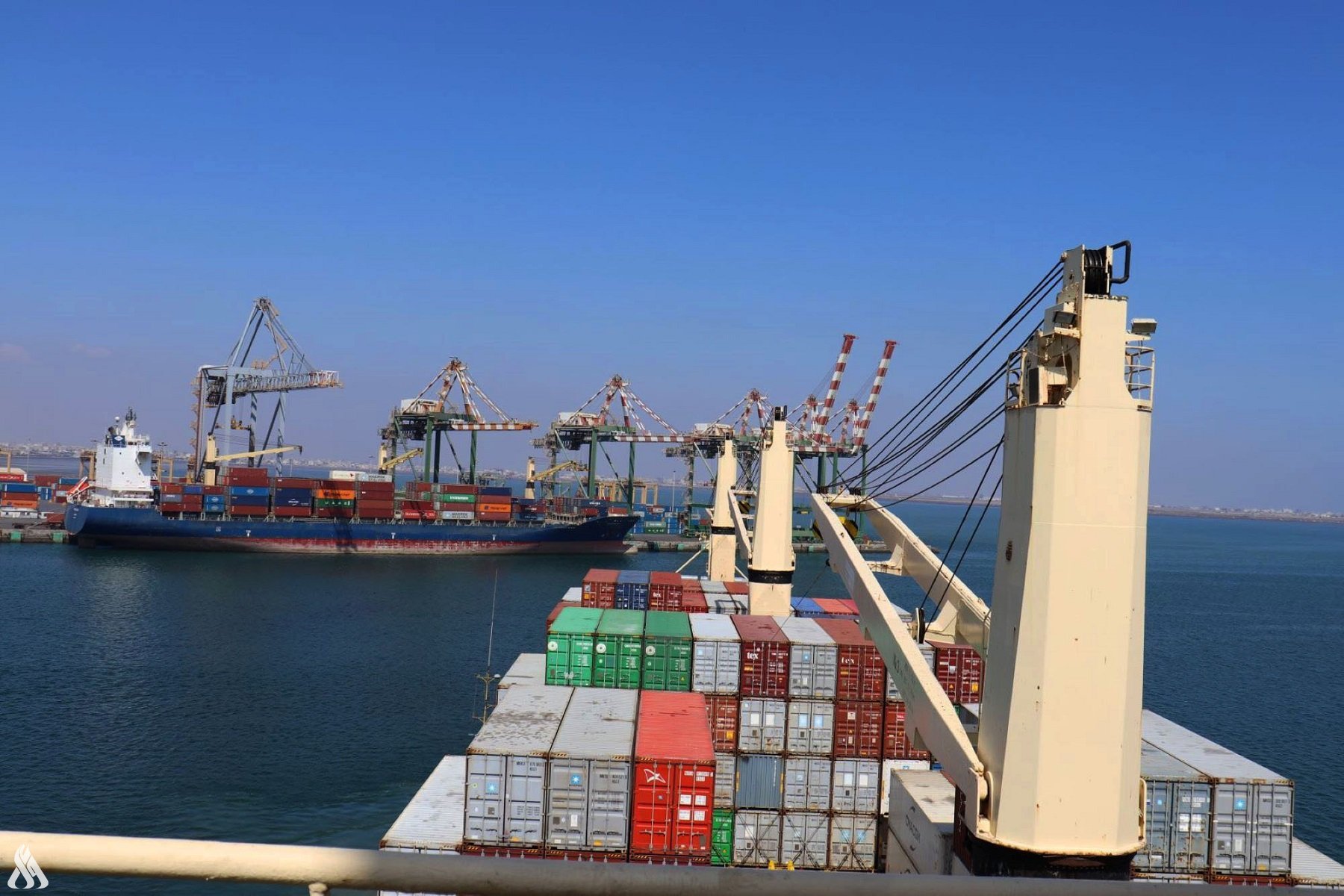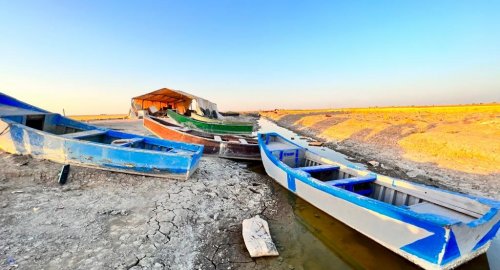
(INA) documents the scarcity of water in Habbaniyah Lake

- 4-08-2023, 15:53
Anbar - INA
Ahmed Al-Dulaimi
Nassar Al-Haj
Edited by: Hussein Al-Nasser
Iraq is facing a water scarcity crisis and severe drought, which has caused a decrease in the strategic water reserve, and warns of environmental risks, while the Ministry of Water Resources confirms that measures, remedies, and measures are taken to confront the crisis.
The crisis affected large areas, and cast a shadow over the rivers, lakes and marshes of Iraq, including Habbaniyah Lake in Anbar Governorate, in the west of the country.
The Iraqi News Agency (INA) documented the water scarcity in large parts of Habbaniyah Lake, and met with the director of water resources in Anbar, Jamal Odeh Samir, to review the procedures of the ministry and his department and their solutions.
Samir says: " Habbaniyah Lake is considered a storage depression, i.e. a reservoir for storing the surplus quantities received from Haditha Lake, as well as from the Syrian and Turkish borders across the Euphrates River. This flood wave is passed through the Alwarar regulator, storing it and benefiting from it in the season of water scarcity."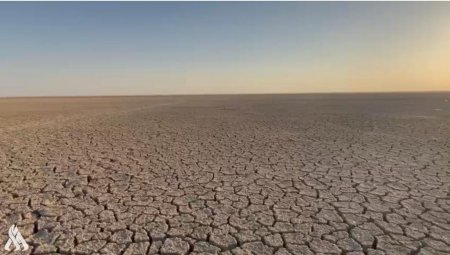 Climate fluctuations and low water revenues
Climate fluctuations and low water revenues
Samir added, "Iraq was affected by climatic fluctuations, as well as the lack of water revenues coming from upstream countries such as Turkey and Syria during the past four seasons, so water storage was used in all lakes such as Lake Mosul Dam,Tharthar Lake , Haditha Lake , as well as Habbaniyah Lake , and it was filled The lake reservoir in 2020, and its level reached its highest level.
And he continued, "The storage capacity has reached 3.3 billion cubic meters, that is, its absorptive capacity has become complete, and after the year 2020, Iraq and the regional and neighboring countries were exposed to climatic fluctuations and lack of revenues, which led to the withdrawal of quantities from Habbaniya Lake ."
He pointed out that "the Euphrates River has been fortified with water stored in Habbaniyah Lake and this water has been pushed to compensate for the shortage in the Euphrates River in relation to Fallujah, as well as down to the southern governorates, as part of a plan prepared by the National Center for Water Management in Baghdad."
He stressed that "water management is controlled by the ministry, so the strategic water storage in all lakes is used and compensated to fill the shortfall in the lack of water revenues coming from the Syrian-Iraqi border.".
The lake is out of service
Samir says, "During the previous winter season, Lake Habbaniyah was not supplied with water due to the lack of water revenues, the lack of rain in the upper Euphrates River, i.e. the western regions, in addition to the lack of water releases coming from the Syrian-Iraqi border."
He added, "This led to a decrease in the level of Lake Habbaniyah to below the operational level in the Al Thaban system, which consequently led to the lake being out of service."
Fallujah dam and Al-Ankur and Al-Majar regions
He stressed that "the areas of Al-Ankur and Al-Majar have population centers, and approximately 9 thousand people live in the areas of Al-Ankur and depend mainly on fishing in Habbaniyah Lake ."
He continued, "These areas, under the direction of the Minister of Water Resources, were given the original approvals for Anbar Governorate to extend a pipe and water share at the front of the Fallujah Dam, feeding the areas of Al-Ankur, Al-Majar, as well as Al-Rahaliya."
And he indicated that "a part of this project has been implemented, and the second part will be completed from the allocations of Anbar Governorate for the year 2023 when the budget is implemented.".
High salt content and difficulty in increasing the water level
He pointed out that "the Ministry of Water Resources worked to send excavators, as well as dig wells, but the percentage of salts is high and the wells did not work there, so the Anbar governorate, as well as the local government, the water departments and district offices in Habbaniyah, as well as Ramadi, were instructed to send basins to these areas and treat them as quickly as possible."
He stressed that "it is currently difficult to increase the water level in Lake Habbaniyah due to its lack of availability, and there are not enough quantities to compensate for this shortage in Lake Habbaniyah, which is a storage space, and is also subject to evaporation in the summer season."
He explained that "all water storage is preserved and not exposed to water bodies, as it will lead to the consumption of large quantities due to the intense heat, evaporation and lack of benefit from them, so the plan of the Ministry of Water Resources is focused on pumping water from Haditha Lake, as well as Lake Tharthar on the river column only to deliver water to Water complexes and water flows only for these works and not for lakes and storing them in a complex or a water depression.
Foreign Minister Invites Dutch Counterpart to Visit Iraq
- politics
- 06:38
Iraq Condemns Zionist Airstrikes on Syria
- politics
- 06:36
Iraqi Woman Wins First Place in Public Speaking Competition in Paris
- Investigations and reports
- 05:53
Al-Mandalawi and the US Charge d'Affaires Discuss 3 Issues
- politics
- 05:47
Al-Sistani: Tomorrow, the 29th of Ramadan
- Local
- 25/03/29
Al-Amiri warns of any war between Iran and the US
- politics
- 25/04/01





